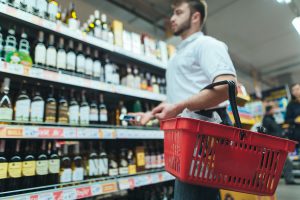
Liquor store retailers face a unique set of challenges. Your inventory is inherently complicated with the need to track thousands of bottles and cans of alcohol from around the world. And running a sale can mean several different types of promotions all running at the same time. Moreover, you need to stay in compliance with regulations and manage labor and inventory so you can still turn a profit.
Owning a liquor store shouldn’t be a risky business. Make sure your point of sale (POS) solution does these three critical things to support your operation.
1. Age verification. The sale of age-restricted items shouldn’t put your business at risk for fines and penalties. Unfortunately, employees can forget to check an ID or try to cut corners during a busy time by judging from a customer’s appearance whether or not they are of legal age. The penalties for selling items to underage teens are steep, so owners should protect themselves by employing a liquor store retail POS with integrated age verification.
This functionality prompts cashiers to scan the shopper’s government issued-ID with the system’s barcode scanner, validating their age before proceeding with the transaction. Not only does scanning ID protect your business, it also helps reduce transaction times, eliminates the margin of error and ensures regulatory compliance.
2. Built-in inventory control. Liquor stores carry thousands of bottles and cans, in a multitude of sizes and brands—and often sold both singly or by the case. Inventory counts change with each transaction, so it’s important to have real-time data. A POS system’s inventory control function can also be an invaluable tool when a customer is looking for something specific. Liquor store retail POS can also receive inventory information from a tablet whenever a mobile solution is in use.
A liquor store retail POS system that generates barcodes also protects your profit margin and inventory by labeling items and shelves properly and clearly displaying prices. Proper labeling helps maintain accurate inventory counts in the POS system and protects you from pricing errors that can eat away at the bottom line. A liquor POS system with barcode printing technology also allows stores to generate their own barcodes for products that don’t have preprinted labels, like specialty beers and small-batch liquors.
3. Promotional pricing. Customers need to stock up on spirits at different times of year—especially during holidays, around major sporting events, or through BBQ season. Promotional pricing will encourage higher sales, especially if customers already have a few bottles in their cart. However, unlike typical retail pricing, liquor store retail POS should incorporate several different types of promotions. These include:
- Mix and match: Customers can receive a discount for buying a certain number of bottles. They can mix different types of wine/liquor/beer and sizes, with preset restrictions on sizes or brands.
- Quantity pricing: Discounted or bulk pricing should be available for customers or for a large event.
- Member pricing: Customers who are members of the store’s loyalty plan are eligible for discounts on certain products.
Liquor store retail POS systems can make managing your business easier. Features that support age verification laws make it easier for employees to keep your business in compliance, and inventory management can help you track your diverse inventory so you stay well-stocked and can provide real-time answers on availability to your customers. Your POS system can also help you run effective promotions that will improve your bottom line. Don’t risk going it alone. Back your business with technology that gives you the capabilities you need to do it right.







